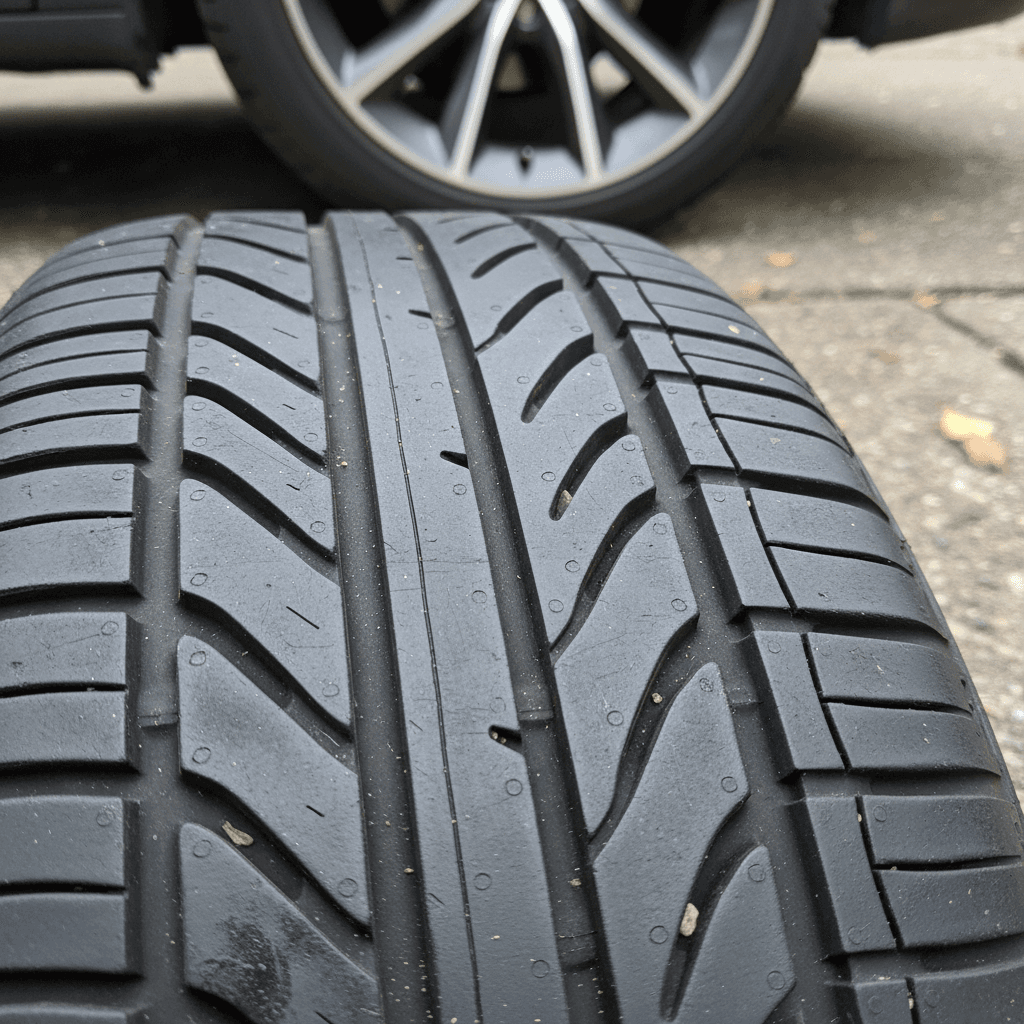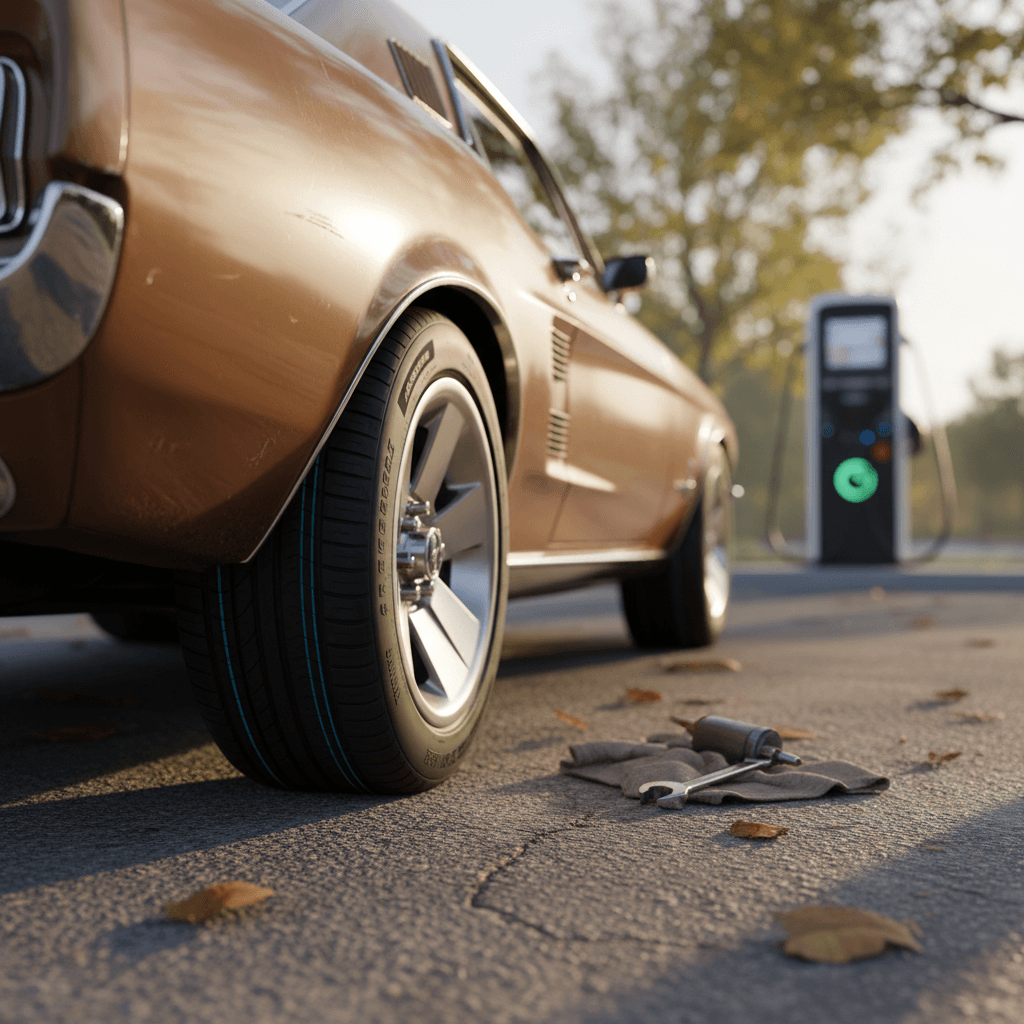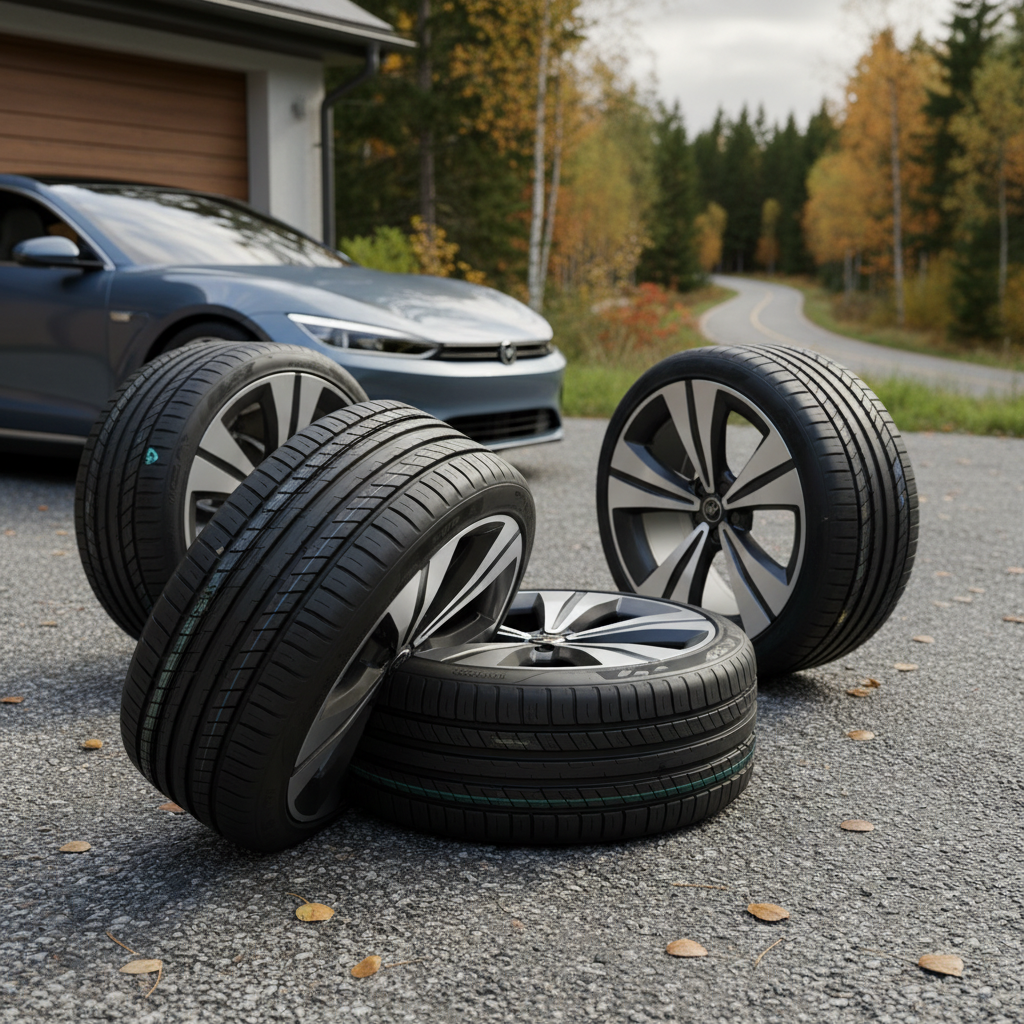Search for “EV tires on gas car” and you’ll fall into a rabbit hole of half-answers and forum folklore. Some people swear EV tires transform their commuter. Others call them overpriced gimmicks. The truth, as usual in the car world, is more nuanced, and more interesting.
Short answer
Can you run EV tires on a gas car?
From a pure fitment standpoint, EV tires are still just tires. They use the same bead design, mount on the same wheels, and follow the same sizing conventions as any other passenger-car tire. If the numbers on the sidewall match what your owner’s manual calls for, size, load index, speed rating, you can bolt them onto a gasoline car without violating the laws of physics or the DMV.
- Match overall size (example: 225/45R18)
- Meet or exceed the required load index (for example, 94, 98, 103)
- Meet or exceed the required speed rating (H, V, W, etc.)
- Choose the right category for your climate: all-season, summer, or winter
Warranty fine print
How EV tires differ from regular gas-car tires
To decide whether EV tires belong on your gas car, you need to understand what makes them different. EV-specific rubber isn’t magic; it’s a bundle of engineering tweaks aimed at range, weight, and noise.
EV tire design vs. regular tire design
Same basic shape, very different priorities
Lower rolling resistance
Higher load capacity
Noise and comfort tuning
There are other details, tread blocks shaped to work nicely with strong regenerative braking, compounds that balance longevity with grip under instant torque, but those three are the biggies. On a gas car, you’ll still feel those differences; they just show up in different ways.

Pros of using EV tires on a gas car
So what do you actually gain if you put EV tires on a conventional car? In the right use case, more than you might think.
Potential benefits of EV tires on a gas car
Quieter highway cruising
EV tires are deliberately engineered to hush road noise, sometimes with foam liners, sometimes with clever tread design. On a gas car, especially a refined sedan or crossover, that can mean a noticeably calmer cabin on coarse pavement.
Extra load capacity and stability
If your gas car tows occasionally or spends its life full of people and luggage, the higher load index and stiffer construction of many EV tires can be an advantage, especially in crossovers and minivans.
Decent bump in fuel economy (sometimes)
Low rolling resistance is low rolling resistance, whether the powertrain burns electrons or gasoline. On a long‑commute highway car, you might claw back a bit of fuel economy, think incremental, not miraculous.
Strong wet and all-weather grip
The better EV tires balance low rolling resistance with advanced tread sipes and compounds for wet braking and traction. Those traits carry over unchanged on a gas car.
Where EV tires shine on gas cars
Downsides and trade-offs to know
Now the bill comes. EV tires were not designed with your 10‑year‑old compact in mind, and there are real compromises.
Common drawbacks of EV tires on gas cars
The fine print in the marketing brochure
Higher purchase price
Heavier construction
Longevity trade-offs
Biggest mistake to avoid
Safety, load index, and legality
Here’s the non-negotiable part. Regardless of whether a tire is billed as EV‑specific, you must respect the basics: size, load, and speed rating. That’s what keeps you in the realm of safe and legal.
Decoding the numbers that matter
Match these specs first; the EV label is secondary.
| Marking | What it is | Why it matters on a gas car |
|---|---|---|
| 225/45R18 | Tire size | Must closely match factory size so your speedometer, ABS, and stability systems behave properly. |
| 95 | Load index | Indicates how much weight each tire can safely carry. Never go below the factory number; equal or higher is OK. |
| V | Speed rating | Maximum sustained speed the tire is designed to handle. Again, match or exceed factory spec. |
| XL / HL | Extra / High load | Common on EV tires. Safe to use on a gas car as long as size and speed rating fit; can add a bit of stiffness. |
Always consult your owner’s manual or door‑jamb placard before deviating from factory tire specs.
Simple rule of thumb
Fuel economy and noise: What to expect
EV tire marketing leans hard on range, because range anxiety sells tires. On a gasoline car, that becomes the quieter cousin of the same idea: fuel economy. But the story isn’t as dramatic as the ads suggest.
Fuel economy gains
If you replace worn, sticky performance tires with fresh, low‑rolling‑resistance EV tires, you can see a measurable-but-not‑magical bump in highway mpg. Think in the low single digits: enough to notice over thousands of miles, not enough to erase a car payment.
On the flip side, bolting EV tires onto a car that already rides on efficient touring rubber may not move the needle at all.
Noise and ride quality
Here EV tires often deliver. Acoustic foam and tuned tread blocks can knock down the coarse roar you hear on concrete interstates. If your car’s cabin is already well insulated, you’ll enjoy the effect. On a loud, older compact, engine and wind noise may still dominate, blunting the benefit.
Stiffer sidewalls can also make impacts feel sharper over potholes, something to consider if you already cringe at your local roads.

When EV tires on a gas car actually make sense
Let’s get practical. Here are the scenarios where choosing an EV‑optimized tire for your gas car isn’t crazy, it’s defensible.
- You drive a heavier gas crossover or three-row SUV and often carry passengers and cargo.
- You do lots of highway miles and value low noise and stability more than razor‑sharp steering feel.
- You’re replacing ancient, noisy, low‑quality tires and want to jump a couple of generations in tech in one purchase.
- You tow a small trailer and appreciate the extra load capacity and heat resistance of an XL / HL tire.
Good fit example
When you should skip EV-specific tires
There are also plenty of situations where EV branding on a tire is just that, branding, and a good conventional tire will serve you better.
- You drive a light compact or sports car and care most about steering feel and feedback.
- You live somewhere with harsh winters and need a dedicated winter tire: focus on snow/ice performance, not EV marketing.
- You’re on a tight budget: high-quality non‑EV touring tires often undercut EV‑specific models on price while delivering 90% of the benefits.
- Your car rarely leaves city streets; low‑speed driving tends to mask both rolling-resistance benefits and high‑speed noise tuning.
Winter driving note
How to shop if you want EV-style tire benefits
Maybe the EV logo doesn’t matter to you, but the characteristics do: quiet, efficient, stable, and long‑lasting. Here’s how to hunt for those traits without getting lost in the buzzwords.
Step-by-step tire shopping checklist
1. Start with your door‑jamb sticker
Note the OEM tire size, load index, and speed rating. Treat these as your minimums. Any candidate, EV or otherwise, must match or exceed them.
2. Decide your top priority
Be honest: is it <strong>noise</strong>, <strong>longevity</strong>, <strong>wet/snow grip</strong>, or <strong>price</strong>? No tire is best at everything, and EV models are no exception.
3. Filter for “grand touring” or “touring”
In most online tire tools, this category is where you’ll find quiet, comfortable, efficient tires, EV-specific and otherwise.
4. Look at user reviews from similar vehicles
Reviews from owners of midsize sedans and crossovers will tell you more than the marketing copy. Focus on comments about noise, ride, and tread life.
5. Check for XL / HL and noise features
If you haul heavy or drive long distances, an extra‑load (XL) tire and acoustic foam can be worthwhile upgrades, even on a gas car.
Thinking about going electric next?
FAQ: EV tires on gas cars
Common questions about EV tires on gas cars
The bottom line
Using EV tires on a gas car isn’t heresy; it’s just an unusual way of buying yourself a bit more refinement and safety margin. For the right driver, highway miles, heavier vehicles, sensitivity to noise, they can make a gas car feel more grown‑up and composed. For others, they’re simply an expensive way to do what a good conventional touring tire already does well.
So shop the way engineers think: start with size, load, and speed rating, then decide what you actually care about, quiet, grip, longevity, or price. If an EV‑branded tire happens to tick those boxes at a price you like, bolt it on. If not, don’t lose sleep. The right tire for your gas car is the one that fits your life, not just your marketing feed.


